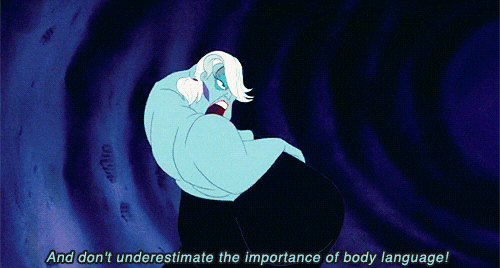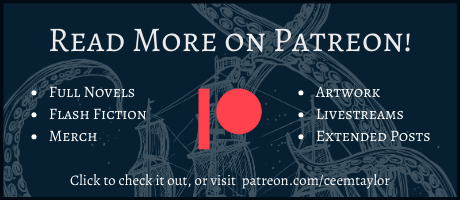Note: this is a preview of a post that’s fully available on Cee’s Patreon.
Do your characters ever suffer from a case of “stage fright?” Y’know, that initial awkwardness which bleeds its way into their words and actions as you try to figure out what they’d do/say? The shy hesitation, as if they’re waiting for their cue to fully step into the spotlight of your novel?
You’re not alone. As authors, we often find ourselves playing the role of directors, coaxing our characters out of their shells and guiding them toward a captivating performance.
Crafting a character’s personality bears some similarity to coaching a fledgling actor. It takes time, dedication, and the creative energy to work out exactly what’s going on in their head whenever they’re on the stage. And that says nothing of the patience it takes as we slog through those first few chapters with stiff, difficult characters who haven’t yet blossomed into the rich, multidimensional personalities we had in mind.
Characters get stage fright not because they’re actual actors feeling nervous about tackling our novel’s first few scenes, but because we’re nervous as we write—with how little we really know about them now that they’ve left the nebulous wisp of our daydreams and been locked into words on a page. In other words: we might think we know them when we picture the handful of scenes we’re excited to write. But a novel is more than a handful of scenes, and eventually, we’ll hit scenarios for which our daydreams didn’t prepare us—scenarios in which our characters no longer confidently lead us across the stage.
If you’ve ever asked yourself, “what the heck would they do or say in this situation?” this post is for you. I’ve put together five thought experiments / writing exercises to guide and enrich the character development process. Grab your metaphorical director’s chair, and let’s dive in!
#1 Tick, tick, boom
The ‘ticking clock’ is a metaphor used by Lisa Cron in Story Genius to refer to the countdown of events that happens before the clock ‘strikes midnight’ at the story’s inciting incident. She uses this metaphor as a way to help writers figure out where their opening scene should sit.
Although one of the first things we figure out about our story is where it starts, we don’t often think about what’s happened immediately before the beginning of our story—the days, weeks, and months leading up to the opener—in more than vague terms.
When we say stories start in medias res, we mean that our stories begin on a day in the middle of the protagonist’s life. One of the best ways to get to know them is to do a ‘tick, tick, boom’ writing exercise for the four or five ticks prior to the first scene. Use the immediate run-up to the opening scene as a tool to understand how the character’s decisions and behaviors set them on track to end up center-stage at the beginning of act one.
Consider: The Fellowship of the Ring opens on Bilbo’s 111th birthday party, and the events that follow predispose Frodo to saying ‘yes’ to bringing the ring to Rivendell. But what happened in the days leading up to this birthday party? The weeks leading up to it? The months leading up to it? If I were Tolkien, I could get a better handle on Frodo’s character by picking a timescale that best suited him and his story, then writing a scene for each ‘tick’ leading up to page one.
Write the four or five scenes that precede the opener of your story, paying particular attention to your protagonist’s voice and GMC (goals, motivations, conflicts). These scenes can take place once a day prior to the story start, or once a week/month/year—the choice of timescale is yours.
Walking backwards can help you get a better handle on your characters by forcing you to think about who they are and what they want outside the driving motion of the external plot.
The rest of this post is available at the AuthorShip+ tiers on Cee’s Patreon. Click the image above to go straight to the post, or take a look at the tiers and what they have to offer right here.











